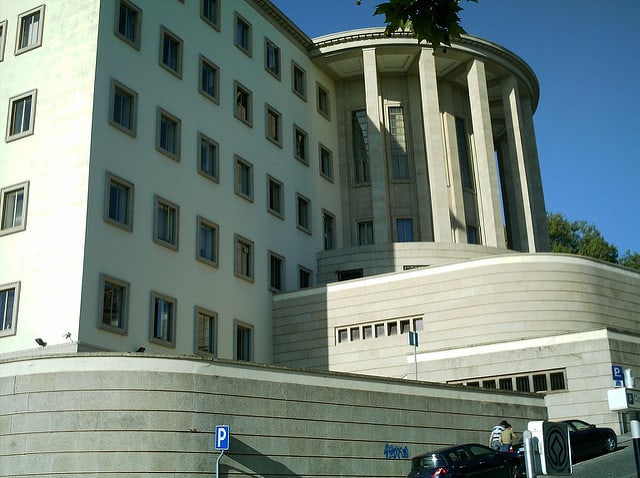
We must first focus on the question and the concept of costs, since they are considered a credit to the prevailing party. However, this credit is different from the credit that comes from a service leasing contract between the lawyer and the client, since it does not derive from a prior agreement with the professional (lawyer or solicitor), but rather from the court ruling on costs. It therefore differs from service contracts with regards to its origin, since it does not have a contractual origin, but rather a legal one. Moreover, the holder is different, since it favours the client rather than the lawyer.
Therefore, the following concepts are clear:
Now that these aspects are clear, we can now move on to discuss these procedural costs:
In the case of the party ordered to pay the costs, consultations V1729-15 and V0473-15 of the General Tax Directorate (hereafter the DGT), consider their payment to be a capital loss to which Personal Income Tax applies.
This is due to the fact that said payment supposes an alteration of the taxpayer’s equity which, given that it is beyond their control, is excluded from a possible consideration as a so-called common “consumption”. In other words, it is not included in any of the cases established in Article 33.5 of the Spanish Personal Income Tax Law, which are those exempt from their computation as capital loss, so it must be considered as such.
Moreover, it is supposed that this taxpayer will have paid the fees of the professionals contracted, and that, unless when it comes to expenses considered to be legal defence (or involved in economic activity), derived directly from disputes arising in the relationship between the taxpayer and the person from whom they receive the income, up to a limit of 300 euros per year (pursuant to Article 19.2, paragraph “e” of the same Law), will not be deductible for Personal Income Tax purposes, since in this case it is an application of income to consumption, and it is therefore is non-deductible.
It is supposed that the winner of the lawsuit will have previously paid the procedural fees due for the professional services provided by the lawyer and solicitor contracted by them. If the process does not take into account the exercise of a business activity, it is understood that they do not have the character of deductible expenses (except for the legal defence expenses already mentioned) and will be considered an expense due to consumption, that is, non-deductible in accordance with paragraph 5 of Article 33 of Spanish Personal Income Tax Law 35/2006, of 28th November (or IRPF using its Spanish abbreviation). They therefore cannot be computed as capital losses.
Furthermore, with regards to the amount received by the party ordered to pay the procedural costs, the General Tax Directorate maintains the criterion (various Binding Consultations: V0888-14; V2909-14; V0272-16; V0767-16; among others) of considering the payment of costs as compensation to the successful party, by the party ordered to pay the costs, and as restitution for the defence and representation expenses.
The DGT’s criterion is as follows: “the taxation is due to the fact that it reimburses the defence and representation expenses made, implying the incorporation to its equity of a credit in their favour or of money, thus constituting a capital gain, pursuant to Article 33.1 of the Personal Income Tax Law”.
In this way, whoever wins the lawsuit and receives the payment of the procedural costs from the condemned party, they are reimbursing their defence costs, which the Personal Income Tax Law (IRPF) qualifies as a capital gain and which must be included in the statement for the corresponding financial year in which the conviction is ruled, including the amount in the general taxable income of said tax.
Our description may produce distortion that would be detrimental to the taxpayer who is obliged to pay the expenses of their lawyer and procurator in full, because these are non-deductible (if they are not part of the aforementioned Article 19.2, nor are they involved in the development of an economic activity), either as an expense or a capital loss, and that when compensated provokes a capital gain in their income.
Moreover, this way of integrating the collection in the Personal Income Tax distorts the purpose of restoring the harm caused in the winner’s equity for having paid the procedural costs.
To make matters worse, the legislator has stated that the sum of the costs must include the VAT due, since the recipient of the service will have paid it and thus the total cost will be reimbursed. However, this forgets that, since it is considered a capital gain, the winner only receives part of the conviction, which is the net amount of the invoice deducted from the personal income tax, an amount that will never be enough to cover all the costs incurred.
The current law fails to provide a solution to this problem, so the law should be subject to urgent and express modification with regards to taxation.
Sometimes the Tax Agency carries out inspections because it suspects that some legal figure is…
What is a loan for use Agreement? The Loan for Use is a legal concept…
Do you work on commission? If so, you should know that the legal status of…
On July the 9th, 2021, Law 11/2021, on measures for the prevention and fight against…
“It’s not Common to Reveal Internal Secrets, but the Sector must Continue to Professionalize; We…
On December the 2nd, 2025, the Council of Ministers approved Royal Decree-Law 15/2025, which postpones…